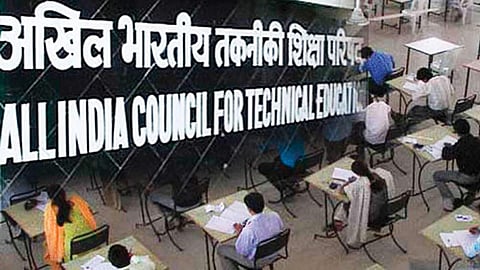

AICTE's strict warning to engineering colleges and technical institutions against 'faculty sharing', has been noted as a questionable move by stakeholders, where the council has failed to get its priorities straight. While some claim there is a lack of clarity about existing rules itself, others call it a mere diversion from the council's inadequacies in executing responsibility towards staffers.
Kumar, a medical education administrator of 20 years, acknowledges that something is very wrong with the functioning of statutory bodies. In the medical field, as also engineering, there is a lack of understanding of ground realities by top officials, he says, which has led to blanket regulations in terms of appointments and other aspects. He believes in a more consultative process with the stakeholders. The administrator of PESIT College Jawahar pointed to a lack of clarity in teachers' appointments. -"For instance, AICTE mandates 1:20 teacher-student ratio. It also says colleges must have up to 25 per cent of adjunct faculty. The council is still to clarify if the 25 per cent faculty is part of the (1:20 ratio) mandated appointments.-"In such a case, colleges may have shared their guest faculties, which is then reflected as an anomaly in the software.
While agreeing this could be the case, Former Vice-Chancellor of VTU, professor Sridhar highlighted possibilities of non-autonomous colleges having appointed guest faculty as regular teachers. While a guest faculty is meant only for a specific paper and are highly specialised in their field, they are often asked to teach, for an honorarium, extensively in unaided colleges that have a wide range of subjects. These guest faculties can be shared as per the AICTE rules. But, he says, the problem arises when many non-autonomous colleges appoint guest faculties and have them work as regular lecturers to meet the 1:20 teacher-student ratio. When this faculty member works elsewhere, the updated AICTE software sounds an alarm, he says.
But why do colleges appoint guest faculties for regular classes? Sridhar alludes it to cost-cutting. "While a professor appointed as per the AICTE pay scale would take home a salary of more than a lakh, a guest lecturer is sent home with a fraction of it - Rs 25,000."Lecturers, on the other hand, have alleged that their problems are placed on a back burner, while the AICTE is attempting a facelift. The more burning problem is faculty members slipping into depression. This includes those aged 50, and near retirement, who have been fired by private colleges on the premise of change in teacher-student ratio mandated by AICTE from 1:15 to 1:20. By this, colleges would now require fewer lecturers. Many are in financial distress due to loans and EMI's. Our pleas for a proper regulation have fallen on deaf ears," says the Rajashekar V N, president of Engineering College Faculties Association, who had written to the MHRD in the regard this September.
Joblessness has hit the bargaining power of even the highly qualified lecturers. Rajashekar said teachers have been denied their rightful wages in private colleges - A PhD holder, who is the level of a professor as per AICTE standard, is being paid even Rs 12,000 in some colleges in the state, and Rs 8,000 in the neighbouring state. The AICTE's recent circular, Rajashekar alleges, is a mere display of their strength through warnings, while in fact sidelining real issues. In a communication to engineering colleges and technical education institutes, AICTE has warned against faculty sharing practices, and if found guilty, colleges are liable to lose their 'Extension of Approval'(EOA) for the courses they offer.
